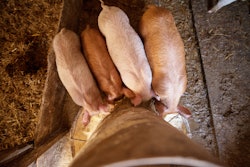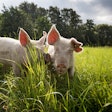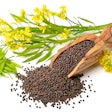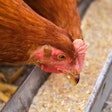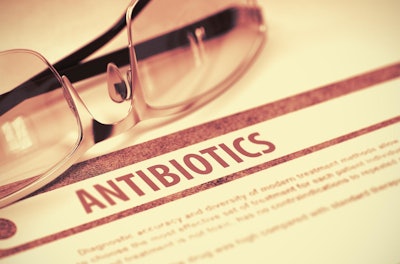
What, exactly, does it mean for a feed ingredient to qualify as a “antibiotic alternative?” Researchers at Purdue University are set to find out.
Jon Schoonmaker, an associate professor of animal science at Purdue University, has received a $650,000 grant from the U.S. Department of Agriculture’s National Institute of Food and Agriculture to lead a team of researchers in the investigation of the non-therapeutic effects of antibiotics in animal feed. Of course, antibiotics kill harmful bacteria, but the drugs are also known to promote the health and growth of healthy animals as well. If we’re going to replace them, Schoonmaker argues, we need a deeper understanding of exactly what they do.
Schoonmaker said his previous work testing and validating antibiotic alternatives such as probiotics, prebiotics and essential oils led him to the realization that in order to determine whether a product is truly an alternative, we need a better understanding of how antibiotics actually work.
“In the short term, [this study] is going to add knowledge to the literature, that maybe other people can build on or companies can build on to develop products,” Schoonmaker said. “Long term, my hope is that there are new products developed that producers can use, so there will be more alternatives available.”
Our understanding of how antibiotics function in the rumen is relatively robust, Schoonmaker said, but comparatively little is known about how antibiotics affect the small intestine. So his study will focus there. He plans to trial two drugs, monensin and tylosin, in cattle transitioning from a forage-based to a grain-based diet. Researchers will slaughter cattle periodically throughout the trial to compare changes over time in cattle fed either of the drugs, to those that do not receive the antibiotics.
Monensin and tylosin are known to have impacts on animal health beyond strictly preventing disease, Schoonmaker said. Tylosin helps prevent liver abscesses by reducing bacterial populations that migrate across the lining of the rumen to the liver. Monensin is known to change the microbial population of the rumen in ways that decrease acidosis, limiting damage to the lining of the rumen and making fermentation more efficient.
Preliminary data from Schoonmaker’s research indicates these antibiotics decrease leaky gut and reduce crypt depth in the small intestine — an indicator of improved cellular health. But more information is needed to develop target products to reduce dependence on antibiotics and, by extension, the risk of antibiotic resistance.
“I don’t think we will ever stop using antibiotics, but we could refine our practices in ways that decrease the impact on antibiotic resistance,” Shoonmaker said.


